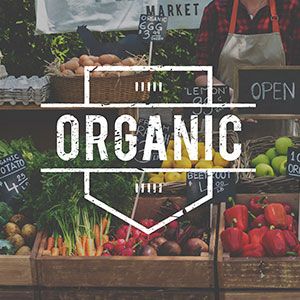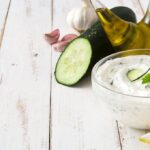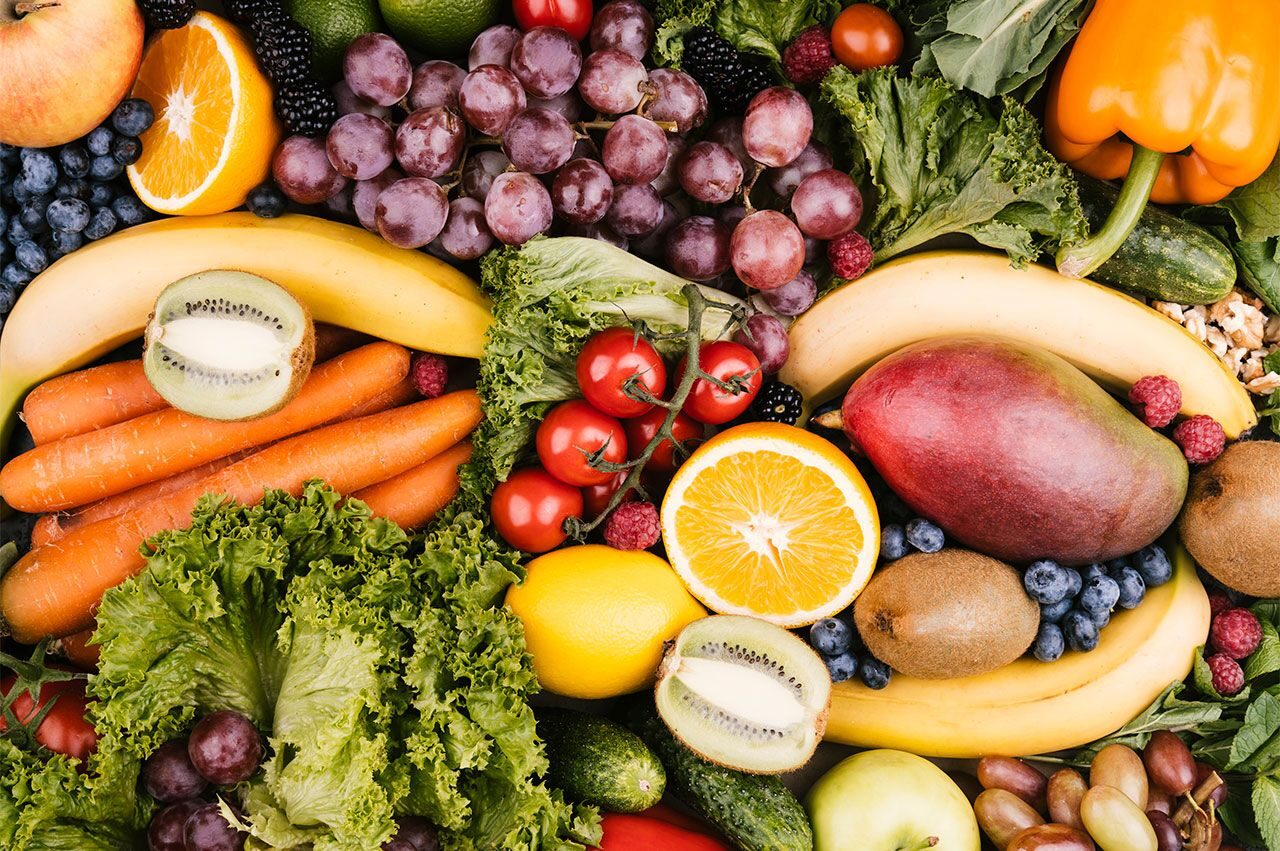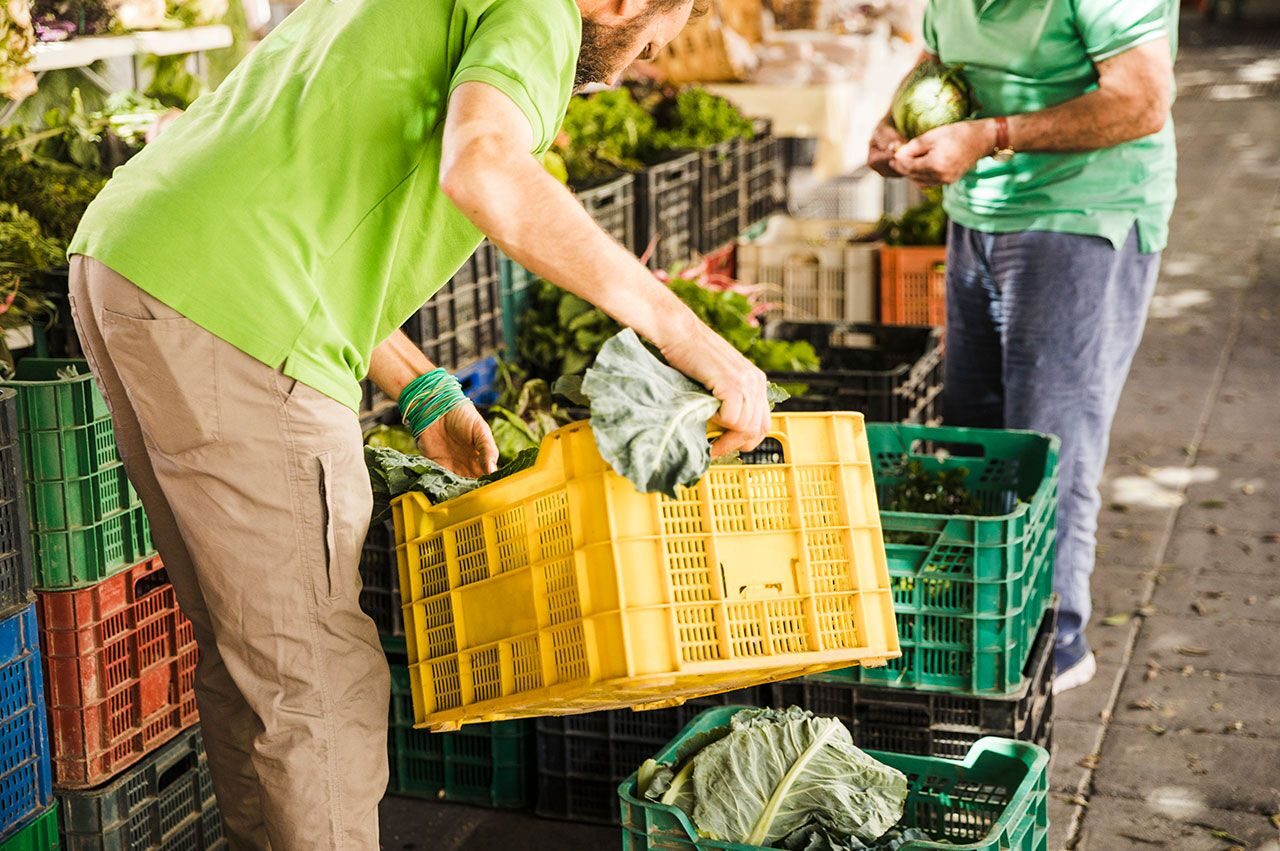There are a few types of organic products that organic food items that are produced through organic farming can be divided into. Organic food is healthier and more beneficial while non-organic food items carry toxic substances that are known to cause damage to human health and to the environment.
If you know the types of organic products, it will be easier for you to pick your choice. Demand for organic foods is primarily driven by consumer concerns for personal health and the environment.
Organic vs. Non-Organic
| Organic produce: | Conventionally-grown produce: |
|---|---|
| Grown with natural fertilizers (manure, compost). | Grown with synthetic or chemical fertilizers. |
| Weeds are controlled naturally (crop rotation, hand weeding, mulching, and tilling). | Weeds are controlled with chemical herbicides. |
| Pests are controlled using natural methods (birds, insects, traps) and naturally-derived pesticides. | Pests are controlled with synthetic pesticides |
| Organic meat, dairy, eggs: | Conventionally-raised meat, dairy, eggs |
|---|---|
| Livestock are given all organic, hormone- and GMO-free feed. | Livestock are given growth hormones for faster growth, as well as non-organic, GMO feed. |
| Disease is prevented with natural methods such as clean housing, rotational grazing, and healthy diet. | Antibiotics and medications are used to prevent livestock disease. |
| Livestock must have access to the outdoors. | Livestock may or may not have access to the outdoors. |
Types of Organic Products
Most people think of organic food, just for fruits and vegetables first. Organic food in general can be divided into a few different categories. Here we put together all types of organic products you may not familiar with it.
Organic Fruits and Vegetables
The first one is organic fruits and vegetables. This is the most common type of organic food available on the market. When you buy those you have to look for a certificate that it comes from an organic plant, that shows no chemicals and pesticides that are used on them. Some fruits can have a higher concentration of pesticides such as peaches, apples, peppers, celery, nectarines, strawberries, cherries, lettuce, kale, grapes, pears, and carrots.
Organic Meat
Organic livestock raised for meat, eggs, and dairy products must have access to the outdoors and be given organic feed. They may not be given antibiotics, growth hormones, or any animal by-products.
Animals are fed with food that has no traces of toxic chemicals or pesticides. The price for organic meat may be higher but you can always reduce your meat consumption and ensure your health.
Organic Eggs & Dairy Products
Buying organic eggs and dairy products is important since nonorganic products such as milk, cheese, and eggs may have traces of growth hormones or had been fed with food treated with pesticides.
Certified organic products from cows, goats, and sheep includes wide variety of dairy products including milk, cheese, yogurt, butter, cottage cheese, sour cream, ice cream, and more..
Organic Seafood
More people became aware that the ocean is polluted with plastic and soon there will be more plastics than fish in oceans, and it many marine life is found traces of microplastic. This a serious treat for out health and choosing organic fish like sea bass, cod, halibut, salmon, and trout can benefit you.
Fish caught in rivers or ponds or open seas are not certified as organic since their way to know what they had eaten. In certified organic fish farming, the fish are given suitable feed that is not treated with any chemicals.
Organic Grains
Grains can be grown with a lot of pesticides that’s the why is good to buy organic pasta, rice or bread. In general all kind of grains and products made from grains is good to choose organic.
Types of Organic Products FAQs
How are organic foods regulated?
A food producer must first earn organic certification that the farming practices and product manufacturing meet the standards outlined by the USDA’s National Organic Program (NOP).
Are organic foods more nutritious?
According to some studies, organic produce has a better and has longer shelf life than conventional products due to the lower nitrate levels and higher nutrition in organic produce. For example, organic potatoes contain more vitamin C. Studies have found that organic fruits and vegetables have better taste, more vitamin C and higher antioxidant levels.
Is organic food more expensive?
All types of organic products are more expensive than non-organic. This is due to the more labor-intensive work required to maintain organic farms compared to conventional farms. There are some saving tips that can reduce the cost such as buying in bulk, fruits and vegetables are cheapest and freshest when they are in season. Find out when produce is delivered to your market so you’re buying the freshest food possible. Join grocery membership stores that offer discounts and have organic produce.
Do organic foods taste better?
According to USDA, these types of organic products are free of hormones and antibiotics, and have fewer pesticide residues than conventionally grown produce.
Other ways to keep the cost of organic food within your budget
Shop at farmers’ markets. Many cities, as well as small towns, host a weekly farmers’ market, where local farmers sell their produce at an open-air street market, often at a discount to grocery stores.
Join a food co-op. A natural foods co-op, or cooperative grocery store typically offers lower prices to members, who pay an annual fee to belong
Join a Community Supported Agriculture (CSA) farm, in which individuals and families join up to purchase “shares” of produce in bulk, directly from a local farm. Local and organic!
Types of organic products buying tips
Buy in season – Fruits and vegetables are cheapest and freshest when they are in season. Find out when produce is delivered to your market so you’re buying the freshest food possible.
Shop around – Compare the price of organic items at the grocery store, the farmers’ market, online, and in other venues (even the freezer aisle).
Remember that organic doesn’t always equal healthy –Making junk food sound healthy is a common marketing ploy in the food industry but organic baked goods, desserts, and snacks are usually still very high in sugar, salt, fat, or calories. It pays to read food labels carefully.







